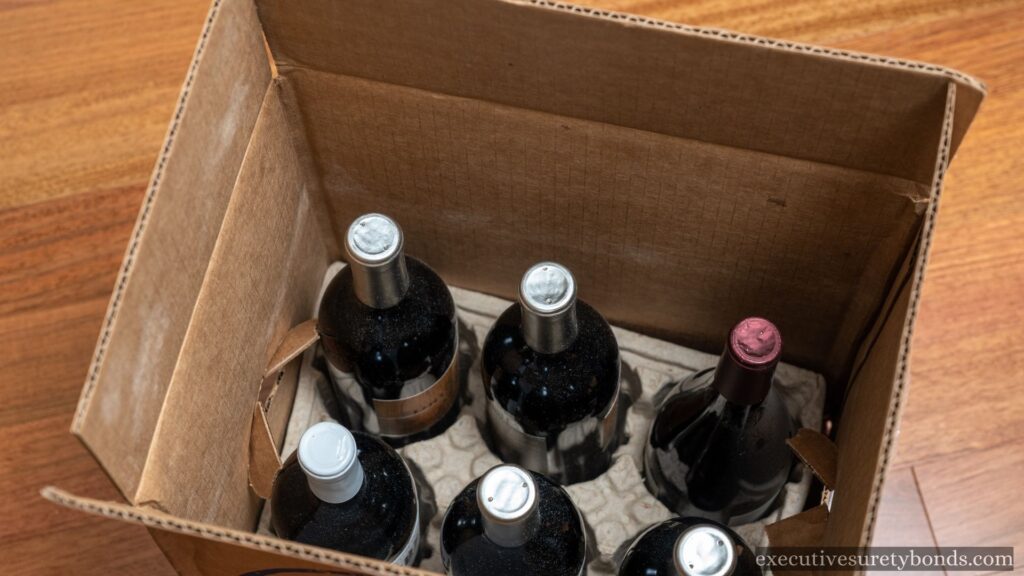Get An Instant Quote on Oregon Liquor Control Commission Licensee (Direct Shipper) Bond Now
Introduction
Oregon’s reputation as a hub for craft beverages and fine wines is undeniable. With a thriving wine industry and a burgeoning craft spirits scene, the state has made its mark on the world of libations. To ensure the responsible distribution of alcoholic beverages, the Oregon Liquor Control Commission (OLCC) imposes stringent regulations. Among these is the requirement for Licensee (Direct Shipper) Bonds, a vital component of the state’s regulatory framework. In this article, we will explore the nuances of the Oregon Liquor Control Commission Licensee (Direct Shipper) Bond, shedding light on its significance, requirements, and implications for those engaged in the direct shipment of alcoholic beverages within the state.
The Purpose of the Licensee (Direct Shipper) Bond
The Oregon Liquor Control Commission Licensee (Direct Shipper) Bond serves as a financial guarantee that individuals or entities authorized to ship alcoholic beverages directly to consumers will adhere to state laws and regulations. It acts as a safeguard to ensure the responsible distribution of alcohol, prevent unlawful sales, and safeguard the interests of consumers.
Understanding the Bond Amount
The bond amount for Licensee (Direct Shipper) Bonds in Oregon varies depending on the type and volume of alcoholic beverages shipped. It is carefully calculated to cover potential liabilities, ensuring that the state and consumers are protected in case of violations. The bond amount reflects the financial commitment required to maintain compliance with OLCC regulations.
Who Needs the Bond?
Individuals or entities involved in the direct shipment of alcoholic beverages to consumers in Oregon are required to secure the Licensee (Direct Shipper) Bond as part of their licensing process. This bond requirement applies to wineries, distilleries, breweries, and other entities engaged in shipping alcoholic beverages directly to consumers within the state. It emphasizes the importance of compliance with state alcohol laws and regulations.
Navigating the Application Process
Securing the Licensee (Direct Shipper) Bond is a crucial step in obtaining or renewing a license for direct shipment of alcoholic beverages in Oregon. Applicants can obtain this bond through licensed surety bond providers. The application process typically involves providing details about the type and volume of alcoholic beverages to be shipped, paying the requisite premium (based on the bond amount), and adhering to OLCC regulations. Once approved, the bond is issued, allowing the licensee to engage in direct shipment activities while complying with state law.
Implications of Non-Compliance
Failure to comply with the Licensee (Direct Shipper) Bond requirement can have serious consequences. Licensees may face legal repercussions, including fines, suspension, or revocation of their licenses for violations of OLCC regulations. The bond underscores the gravity of responsible alcohol distribution and adherence to state laws.
Conclusion
The Oregon Liquor Control Commission Licensee (Direct Shipper) Bond is more than a bureaucratic requirement; it signifies a commitment to responsible alcohol distribution and consumer protection within the state. By mandating this bond, Oregon reinforces its dedication to ensuring that consumers receive alcoholic beverages through lawful and accountable channels. For direct shippers, it represents not only a legal obligation but also a promise to uphold the state’s values of responsible alcohol distribution.
In a state known for its craft beverages and commitment to quality, the Licensee (Direct Shipper) Bond stands as a protector of responsible commerce and consumer safety. It serves as a reminder that the future of Oregon’s libations industry is best nurtured when licensees bear the shield of financial responsibility and adherence to state alcohol regulations. It embodies the state’s commitment to fostering a thriving and responsible alcohol marketplace for residents and enthusiasts alike.
Frequently Asked Questions
Can an out-of-state winery, distillery, or brewery obtain an Oregon Licensee (Direct Shipper) Bond if they want to ship alcoholic beverages directly to Oregon consumers?
Yes, out-of-state wineries, distilleries, or breweries are generally eligible to obtain an Oregon Licensee (Direct Shipper) Bond if they wish to ship alcoholic beverages directly to Oregon consumers. However, they must first obtain the appropriate license from the Oregon Liquor Control Commission (OLCC) to engage in direct shipping activities within the state. Once licensed, they can proceed to secure the required bond to comply with OLCC regulations.
Are there any exemptions or reductions available for the bond amount for small-scale producers or businesses that have a limited direct shipping presence in Oregon?
While the bond amount for Licensee (Direct Shipper) Bonds in Oregon is typically based on the type and volume of alcoholic beverages shipped, there may not be specific exemptions or reductions based solely on the scale of operations or limited direct shipping presence. Licensees should consult with the OLCC to determine if any exceptions or reductions apply based on their specific circumstances.
What happens if a licensee decides to cease their direct shipping activities in Oregon permanently? Can they get a bond release or refund, and what are the steps involved in the process?
When a licensee decides to permanently cease their direct shipping activities in Oregon, they may be eligible for a bond release or refund, provided they have met all the necessary requirements and obligations. The process typically involves verifying that all direct shipping activities have ceased, and there are no outstanding issues or compliance violations. Licensees should work closely with the OLCC to initiate the bond release or refund process and ensure the bond is no longer in effect for their operations in the state.


